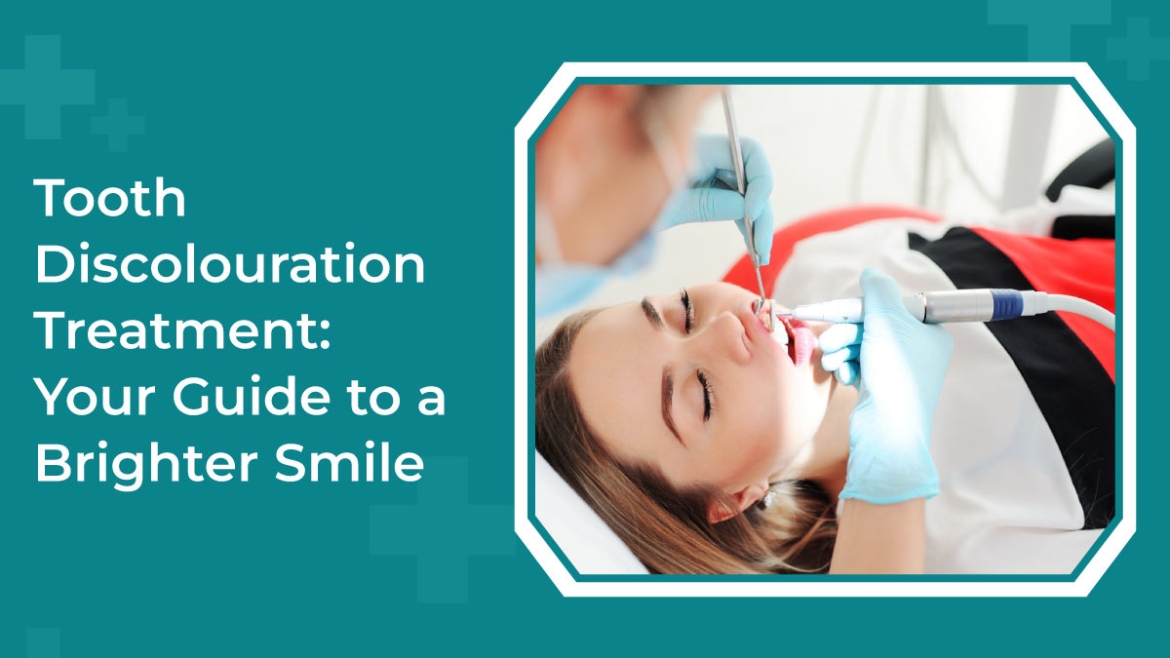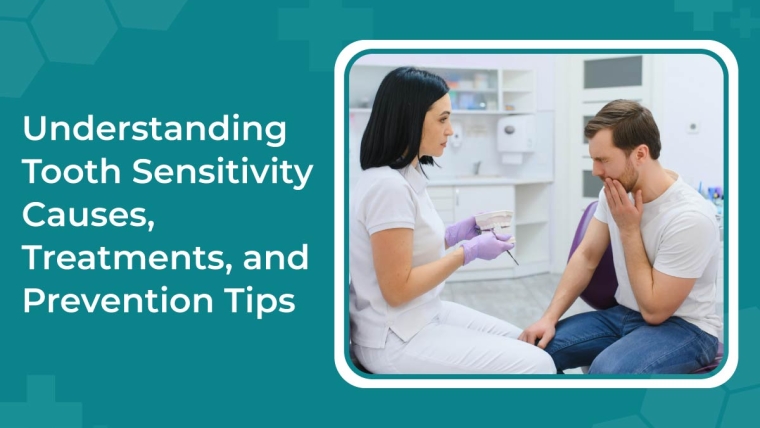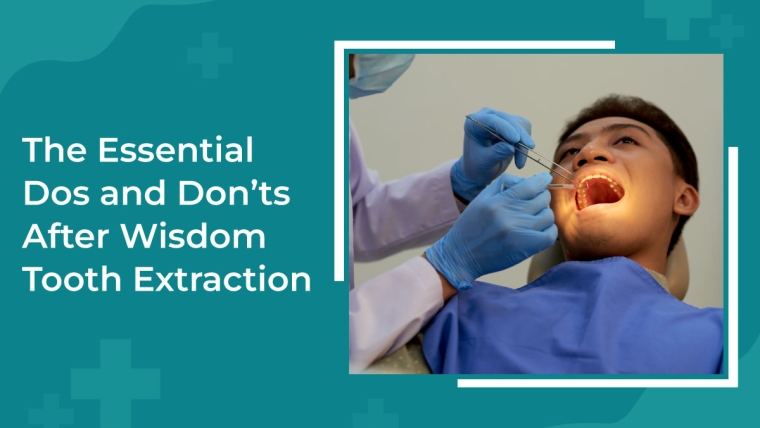Written by: Dr Ekta Khatri – Co- founder, The Func Dent – The Functional Dentistry Center, Bandra
Smiles are one of our most instinctive reactions, given without a second thought. But sometimes, problems like discolouration of the tooth can become a barrier that can even take a toll on our confidence. In such cases, seeking professional advice becomes important, especially if over-the-counter methods are unsuccessful. Timely tooth discolouration treatment can not only help restore your natural smile but will also prevent further worsening of the condition and other possible complications.
In this blog, we will explore the types of tooth discolouration, causes, professional treatment options, and when to consult a dentist.
A] Types of Tooth Discolouration
Tooth discolouration can be classified into two types:
- Extrinsic discolouration: In this type of discolouration, the outer surface of the teeth (enamel) is affected. External factors such as food, drinks, and tobacco use can cause the condition. The stains usually appear as yellow or brown, which can often be removed through professional cleaning.
- Intrinsic discolouration: This type of discolouration originates from within the tooth and often affects the dentin (the layer beneath the enamel). It can be caused by trauma or certain medications. Underlying health conditions or excessive fluoride exposure during tooth development can also contribute. Intrinsic stains are generally deeper and may require advanced cosmetic treatments such as veneers or bonding.
B] Causes of Teeth Discolouration
Tooth discolouration can result from a range of causes, including:
- Poor oral hygiene: Poor oral hygiene is one of the common causes of tooth discolouration. The lack of basic yet important hygiene routines, such as brushing and flossing, can lead to the buildup of plaque and food particles. This buildup eventually contributes to surface stains and gives the teeth a yellowed appearance over time.
- Diet: Diet also plays a significant role in the condition of teeth. Consuming tea, coffee, red wine, or any dark coloured beverages can gradually stain the enamel. This happens due to the chromogens – compounds with strong pigments. Foods and drinks that are acidic can further erode the enamel, which makes teeth more prone to staining.
- Smoking/tobacco: Habits such as smoking and the use of tobacco products also play a key role in the discolouration of teeth. The nicotine and tar found in them can cause yellow or brown stains that are deep and difficult to remove.
- Trauma or dental injury: Sometimes, a hard blow or injury to the teeth during sports or accidents can result in internal bleeding. This trauma may cause damage to the nerve, and if left untreated, the tooth can gradually turn grey, brown, or even black.
- Genetics: Due to inherited traits, some people naturally have yellower or darker teeth, even with excellent oral hygiene. Genetics not only affects the natural shade of your teeth but also influences the structure and thickness of the enamel. The visibility of the underlying dentin also depends on these genetic factors.
- Ageing: Years of exposure to staining food and drinks can cause our teeth to undergo natural discolouration. Over time, enamel, which is the outer protective layer, wears down, making the underlying yellow dentin more visible. Habits practised over a long period, such as smoking, can also significantly contribute to tooth discolouration.
C] Professional Treatment Options
Tooth discolouration can greatly impact a person’s overall smile and confidence. Fortunately, with the help of several professional dental treatments, the natural brightness of the teeth can be restored. A dentist may recommend one or more of the following solutions based on the cause and severity of the discolouration.
Teeth Whitening
In-office teeth whitening is one of the most effective methods, which also gives quick results. At the beginning of the procedure, the dentist applies a protective barrier to the gums and soft tissues. Next, a high-concentration hydrogen peroxide or carbamide peroxide gel is applied to the teeth. A special light is then used to activate the bleaching process. The treatment is considered highly effective, as it lightens the patient’s teeth by several shades in a single session and typically takes around 60 to 90 minutes.
Custom Take-Home Trays
Another popular dentist-supervised option is custom take-home whitening trays. These trays are specially designed to fit the unique contours of a patient’s teeth and prevent the risk of gum irritation.
The process begins with the dentist taking impressions of the patient’s teeth to fabricate the custom trays. Then, a professional-grade whitening gel is provided for home use, along with instructions. The treatment typically lasts for one or two weeks, with trays worn for a few hours each day. The method is ideal for people with sensitive teeth or those who prefer whitening at their own pace, as it allows for gradual and controlled results. The results are longer-lasting than those of over-the-counter products, especially with periodic maintenance.
Veneers or Bonding
Solutions like veneers or bonding are often recommended in cases where teeth are severely discoloured or irregular in shape. They are also used when traditional whitening methods are ineffective.
- Veneers: These are custom-designed, thin shells made of porcelain or composite resin that are permanently affixed to the front surface of teeth. They match the natural shape of the patient’s teeth, are stain-resistant, and provide long-lasting whiteness along with improved visibility. With proper care, veneers can last between 10 and 15 years.
- Bonding: In bonding, the colour and shape of a tooth are improved by applying a tooth-colour resin to its surface, similar to the materials used in dental tooth-coloured fillings. Although not as durable as veneers, bonding is more affordable and less invasive. It typically lasts between 3 and 7 years and may require occasional touch-ups or refinements.
Scaling and Polishing
Although scaling and polishing is fundamentally a cleaning procedure, it contributes significantly to improving the appearance of teeth. This treatment involves removing plaque and surface stains that regular brushing cannot scrape off.
- Scaling: In this step, hardened plaque and tartar are removed from the teeth, especially around the gumline.
- Polishing: The tooth surfaces are polished to remove superficial stains to achieve a clean, shiny appearance.
Scaling and polishing enhance the teeth’s brightness without bleaching and is often used as a preliminary step before other whitening treatments.
Many people delay professional treatment due to dental anxiety, but modern dentistry offers safe, gentle solutions designed to ensure comfort and care throughout the process.
D] When to Consult a Dentist
A variety of factors can cause tooth discolouration, such as poor oral hygiene, dietary habits, smoking, or underlying health conditions. In many cases, tooth discolouration can be simply a surface-level concern that can be addressed with better brushing techniques or whitening toothpaste. However, if the discolouration is persistent or worsening, consulting a dentist becomes important. This applies particularly when symptoms such as pain or gum inflammation occur.
A professional evaluation can accurately diagnose the cause of staining and provide the most appropriate treatment, whether it’s whitening, bonding, or a deep cleaning procedure like scaling and polishing.
If you’re in Mumbai and looking for expert guidance, visiting a dental clinic in Bandra will be helpful for personalised care and advanced treatment options.
For a better understanding of overall oral hygiene, explore our expert guide on dental care.
Looking for brighter and whiter teeth?
Book your appointment today and take the first step toward better oral health!
Conclusion
Tooth discolouration can occur in many forms and is especially common with age. However, if you are struggling with persistent stains that do not respond to traditional methods, it may be time to consult a specialist. A range of treatment options is available, from teeth whitening to scaling and polishing, depending on your specific condition.
Do you suspect your teeth are getting discoloured, even though you maintain good oral hygiene and healthy eating habits? Get in touch with The Func Dent, the best dental clinic in Mumbai. Our highly skilled professionals accurately identify the root cause of your condition and provide the most exceptional care and personalised treatment for your dental health.




